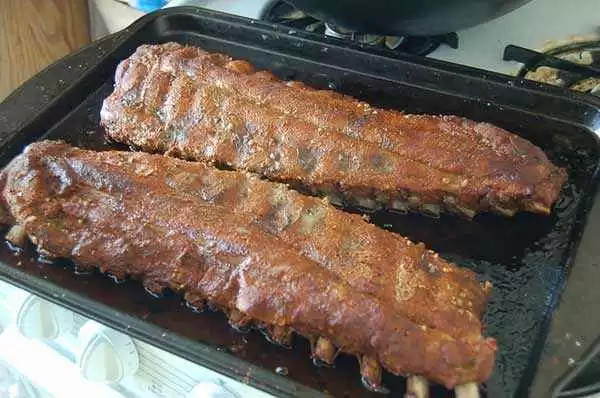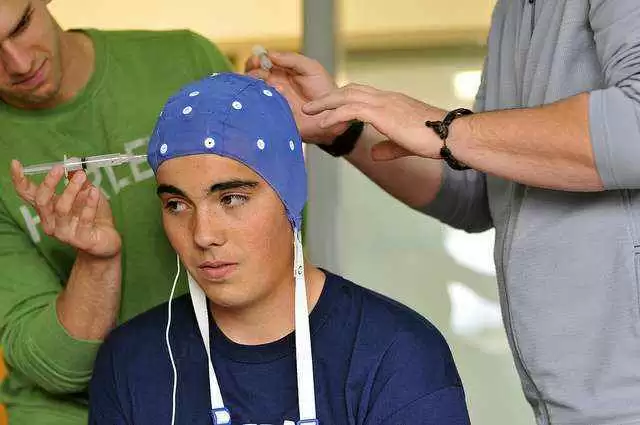
Celiac.com 02/14/2017 - In 1999, Loren Cordain, the renowned professor of Exercise Physiology at Colorado State University who has since popularized the Paleodiet, published an extensive exploration of why our cultivation and consumption of cereal grains has been disastrous for the human race, resulting in many autoimmune, nutrient deficiency, and other modern diseases (1). Previously, in 1987, the famous physiologist, Jared Diamond characterized humanity's shift to agriculture as "The Worst Mistake in the History of the Human Race" (2). A year later, medical doctor and professor of Anthropology, S. Boyd Eaton and colleagues suggested a mismatch between the human genome and our current agricultural diet/lifestyle (3). And more than a decade prior to that, gastroenterologist, Walter L. Voegtlin, M.D., self published a book apparently asserting, based on his treatments and observations of patients, that dietary avoidance of cereal grains and sugars, offset by increased consumption of meats and animal fats, is an effective treatment regimen for a variety of intestinal ailments including Crohn's disease, colitis, irritable bowel syndrome, and indigestion (4). Each of these perspectives was informed by a different but solidly scientific approach to human health. The academic field of each of these authors varied from Exercise Physiology to Physiology, to Gastroenterology, to Anthropology. Yet each of these specialist researchers arrived at the very similar conclusion that cereal grains are not healthful foods for humans. Their strident declarations to that effect leave little room for doubt. Dr. Cordain acknowledges that the roots of some of his thinking lie with Dr. Eaton and his colleagues. Nonetheless, there is a convergence here, of ideas and insights drawn from separate bodies of data and investigative approaches. While there is some overlap between these scientific disciplines, they all lead to a clear indictment of cereal grains as little more than a starvation food for humans. These scientists point to myriad signs of illness that arise more commonly when populations make the transition to eating diets dominated by grains, especially when the grains are refined and when they are combined with sugar.
One critic of this paradigm is the evolutionary biologist, Dr. Marlene Zuk of the University of California at Riverside. According to Alison George at New Scientist, Zuk asserts that the 10,000 years that humans have been cultivating and consuming cereal grains is an adequate time period for humans to evolve an adaptation to these foods (5). But surely this is a Eurocentric view. Simply because some Europeans have been cultivating and consuming cereal grains for ten or more thousands of years does not mean that the entire world's population, or even all Europeans, would or could have adapted to consuming these foods.
Celiac.com Sponsor (A12):
Let's look back to see what we currently know about our human roots and how those early humans spread all over the world. A group thought to number about 200 humans left Africa sometime between 85,000 and 70,000 years ago, during a glacial maximum that lowered worldwide sea levels by about 300 feet below current levels. The enormous glaciers of the time so depleted the oceanic barriers we see today, that these bodies of water were made navigable even with very primitive flotation devices.
The progeny of this relatively small group of early modern people multiplied and went on to parent almost all of today's non-African people of the world with some 1% to 4% of today's human, non-African genes having been derived from the Neanderthal branch of the hominid tree (6). This predominantly early modern human group's progeny would quickly find its way to Australia, the South Pacific, across Asia, to China, east to the Americas and west across India, finally arriving in Europe, where they would supplant the long-time Neanderthal residents who had survived some of Europe's harsh and inhospitable glaciations but apparently could not survive having our forebears as neighbors.
While specific paths and dates for exiting Africa, and worldwide patterns and timing of human distribution remain controversial, most experts now accept that indigenous Australians had arrived there at least 60,000 years ago (6). A similarly recent finding places people in the Americas by at least 55,000 years ago, long prior to the date at which the Bering Land Bridge was thought to be available for human movement from Siberia into the Americas (8). This newer, admittedly controversial date raises the likely possibility that people arrived in the Americas, from Asia, by boats or rafts on which they followed the shoreline east to what is now Alaska, then south of the glaciated wastelands of much of what is now Canada. (Or perhaps they arrived by some other means that we have not yet imagined.) But only a small portion of these early Americans would eat wheat, rye, oats, or barley before the last 200 years or so, especially those living on the Great American Plains, or in the frigid north, the dense jungles or places that were otherwise isolated from the encroaching wave of "immigrants" from Europe and beyond. And none of those aboriginal peoples of the Americas were eating these grains prior to 1492. The epidemics of autoimmunity and obesity that may be seen among indigenous Americans are clear reflections of their recent shift to the gastronomic wonders of foods derived from these European grains.
Further, even among Europeans, grain cultivation and consumption had not uniformly spread across most of Europe until, at most, less than half of the 10,000 years that Zuk says would be sufficient for human adaptation. In Britain, for instance, grain farming was only getting under way about 4,000 years ago, and availability of grains varied according to local geographies and economies. Also, in parts of Scandanavia, wheat bread was a rare treat until after World War II. Some Europeans are thought to have been cultivating grains for even longer than the 10,000 years ago suggested by Cordain, but the evidence is contradictory and accompanied by a range of expert opinions. Further, the health consequences of this nutritional path are consistently seen in the skeletal remains of those early farmers, many of which can now be seen reflected among indigenous peoples of the Americas, as they assimilate our grain and sugar dominated diet. Adaptation to eating grains is not a gentle, joyful process. Early farmers may have produced many more children than their hunting and gathering neighbors, but their lives were shorter, their bodies were less robust, with substantial reductions in stature, and they experienced widespread infectious diseases and ailments driven by nutritional deficiencies.
By the time grains became a cash crop for many European farmers, cereals were disproportionately consumed by affluent urbanites. Those who were large consumers of cereal grains did not include all Europeans, even where yields were prodigious. In more remote, northerly, or mountainous areas, cereal grains, or foods made from them, were likely a rare treat rather than a daily staple.
Jared Diamond points out, that in addition to "..... malnutrition, starvation, and epidemic diseases, farming helped bring another curse upon humanity: deep class divisions." He goes on to argue that only with farming and the storage and accumulation of food can Kings "and other social parasites grow fat on food seized from others". He also presents evidence that farming led to inequality between men and women. Conversely, contemporary hunter-gatherers have repeatedly been shown to be quite egalitarian, both regarding gender and political leadership (9).
Roger Lewin is another critic of the health impact of European grain cultivation on humans. He points out that even in the very heart of the Fertile Crescent, where agriculture got its start, there was not a uniform adoption of farming. One agricultural center at Abu Hureyra, experienced two cycles of abandonment, one at 8,100 B.C.E., lasting about 500 years, and another at 5,000 B.C.E. These periods when agriculture at this locale was abandoned are "thought to be related to climatic change that became less and less conducive to agriculture" (10).
Lewin also harkens to Mark Nathan Cohen's collation of "physical anthropological data that appear to show increasingly poor nutritional status coincident with the beginnings of agriculture.... " (10) suggesting, again, that grains were a starvation food.
Eaton et al also approach grain cultivation from an anthropological perspective, suggesting that increased dietary protein and fats from animal/meat sources likely gave rise to increased stature of earlier humans, along with providing the necessary fatty acids for building larger brains, and allowing smaller gut sizes over the past 2.5 million years. It seems reasonable to assume that if it took our pre-historic ancestors that long to adapt to eating meats and animal fats, the very irregular adaptation period of between less than one hundred years and about 10,000 years that various world populations have been cultivating and consuming wheat, rye, barley and oats would be insufficient to allow full adaptation to eating these immune sensitizing cereal grains.
Dr. Zuk's perspective might be tempered a bit if she considers that Europeans and their descendants do not comprise the entirety of the world's populations. There are several Asian populations that are not insignificant when compared with European populations and their progeny, including the residents of China, India, Pakistan, and South-East Asia. Even among those of us who appear quite European, there may be a mixture of genes derived from peoples of any of the other five populated continents. The approximately 10,000 year maximum period since humans began to cultivate cereal grains would have little adaptive impact on populations that have only been exposed to these grains for a period of somewhere between four or five centuries and seven or eight decades, as is the case among the indigenous people of the Americas, Australia, New Zealand, and much of Asia (6).
Even if all humans had been cultivating and consuming cereal grains for the 10,000 years since this practice was first begun in the Middle East, the high frequency of intestinal, autoimmune, and other diseases that can be mitigated by a gluten free diet, even among descendants of Europeans, leaves little room to doubt that Dr. Zuk's projected adaptation simply has not occurred. The current prevalence of celiac disease and non-celiac gluten sensitivity identifies, at a bare minimum, between 7% and 12% of the American population that has not adapted to cereal grain consumption. While a few research projects suggest that molecular mimicry and the opioids from cereal grains contribute to autoimmunity, obesity, type 2 diabetes and cardio-vascular disease, current research does not provide any clear sense of how many cases or to what degree these health conditions are driven by gluten consumption. We know that foods derived from cereal grains are often laced with refined sugar, but the insulin stimulating properties of gluten alone are such that their role in these conditions cannot, reasonably, be denied. I feel vindicated by these many experts who decry the folly in humanity's embrace of the European grains. I wonder how long it will take for this information to filter into, and be acknowledged by, those who claim that science has led them to advocate cereal grain consumption for everyone without celiac disease and, more recently, non celiac gluten sensitivity?
Sources:
- Cordain, Loren. Simopoulos AP (ed): Evolutionary Aspects of Nutrition and Health. Diet, Exercise, Genetics and Chronic Disease. World Rev Nutr Diet. Basel, Karger, 1999, vol 84, pp 19–73 http://thepaleodiet.com/wp-content/uploads/2012/08/Cerealgrainhumanitydoublesword.pdf
- Jared Diamond, "The Worst Mistake in the History of the Human Race," Discover Magazine, May 1987, pp. 64-66. http://www.ditext.com/diamond/mistake.html
- Eaton SB, Konner M, Shostak M. Stone agers in the fast lane: chronic degenerative diseases in evolutionary perspective. Am J Med. 1988 Apr;84(4):739-49.
- Voegtlin, Walter L. (1975). The stone age diet: Based on in-depth studies of human ecology and the diet of man. Vantage Press. ISBN 0-533-01314-3
- George, A. " The Paleo Diet Is a Paleo Fantasy" New Scientist. April 7, 2013. http://www.slate.com/articles/health_and_science/new_scientist/2013/04/marlene_zuk_s_paleofantasy_book_diets_and_exercise_based_on_ancient_humans.single.html
- Oppenheimer, Stephen. The Real Eve: Modern Man's Journey Out of Africa. Basic Books, NY, NY. 2004
- Fagan, Brian. Cro-Magnon: How the Ice Age Gave Birth to the First Modern Humans. Bloomsbury Press, New York. 2011
- http://www.utep.edu/leb/Pleistnm/sites/pendejocave.htm
- Brody, Hugh. The Other Side of Eden: Hunters, Farmers and the Shaping of the World. Douglas 7 McIntyre Ltd., Vancouver, B.C., Canada. 2000
- Lewin, Roger. A Revolution of Ideas in Agricultural Origins. Science. vol 240, May 20, 1988








Recommended Comments
Create an account or sign in to comment
You need to be a member in order to leave a comment
Create an account
Sign up for a new account in our community. It's easy!
Register a new accountSign in
Already have an account? Sign in here.
Sign In Now